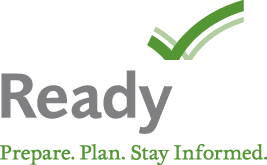When Disaster Strikes: Have a Plan Ready
By the BOMA/Chicago Business Continuity and Resiliency Committee
If recent events during the past year have taught us anything – Hurricane Sandy, wildfires, earthquakes and seemingly dozens of harsh winter storms, to name a few – it’s that natural disasters and severe weather emergencies can hit anytime, anywhere, and with little to no warning.
It’s also well known that one of the best defenses against emergencies is a well thought out, regularly reviewed and practiced emergency preparedness plan. BOMA/Chicago has a longstanding commitment to security and emergency preparedness, and the goal of our Business Continuity and Resiliency Committee is to provide members with useful information that can be applied to buildings’ operational strategy to reduce risks, hazards, threats and vulnerabilities and increase overall resiliency.
We regularly work with our building members to develop a proactive building preparedness plan; however, personal preparedness – a proactive plan to prepare yourself and your family for emergencies – is also imperative to protect you against a variety of threats.
 When it comes to personal preparedness, one of the best resources available is Ready.gov. On this website, you can build your own personal preparedness plan that will allow you to stay informed and safe.
When it comes to personal preparedness, one of the best resources available is Ready.gov. On this website, you can build your own personal preparedness plan that will allow you to stay informed and safe.
Helpful preparedness tips include:
- Be Informed – Understand risks specific to your area (e.g. high risk for extreme weather and storms) and how you can be alerted to those risks. Sign up for local emergency alerts, such as the NotifyChicago emergency alert service, which you can receive via text or email.
- Plan for Your Risks – Develop an action plan for several locations in case disaster strikes at home, work, school, or otherwise. This plan will need to take many factors into consideration including, but not limited to, escape routes, meet-up locations, emergency contacts and more (the City of Chicago has a comprehensive list of tips for reference).
- Establish a Communications Plan – Make sure you have a solid emergency communications plan in place: carry a current contact numbers card with you at all times, and ensure alternate methods of communication in case technology and phone service is affected.
 Have Supplies Ready – Have a first aid kit and emergency supply kit ready to go. Plan for food, water, batteries, medications and any other necessities (diapers, formula, etc.).
Have Supplies Ready – Have a first aid kit and emergency supply kit ready to go. Plan for food, water, batteries, medications and any other necessities (diapers, formula, etc.).- Get Involved – Join a Community Emergency Response Team (CERT) or other Citizen Corps group and promote preparedness in your community.
There is of course no single way to address disasters and emergencies, so everyone should consider their personal situation when planning for emergencies. Knowing what to do before, during, and after emergencies will keep you ready and help you recover faster should a disaster strike.
What personal preparedness plans do you have in place? Any additional tips? Please share in the comments.

 Have Supplies Ready – Have a first aid kit and
Have Supplies Ready – Have a first aid kit and 